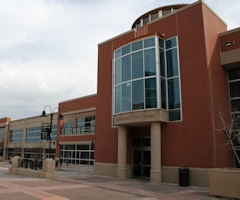The recent ballot issue (2A) to ban recreational marijuana shops in Lakewood is turning out to be expensive exercise in protecting politicians from a potential voter backlash. A majority of council wants to bring in the recreational pot shops in order to bring in more tax revenue that the council can then spend on their favorite causes.
However, the mayor is afraid an outright council approval of the pot shops might result in a voter backlash against his choice for mayor in 2015. While Adam Paul is understood to be the mayor’s preferred choice, Murphy is also considering his friends Tom Quinn and Cindy Baroway. All three are known supporters of expanded marijuana sales.
Since the original Amendment 64 ballot vote legalizing recreational marijuana passed in Lakewood, the mayor and his pro-marijuana allies assume a ballot issue to prohibit recreational pot shops would be rejected. Such a vote would give the mayor a mandate to have his council approve the pot shops in Lakewood. More importantly it gives the mayor and his allies the political cover that they are simply seeking the people’s will.
However, the efforts to provide political cover ran into resistance from the council minority. Ward 4 City Council member David Wiechman noted an unnecessary election would cost the taxpayers $100 -150,000.
Ward 5 City Council member Karen Harrison proposed instead the council go on record and vote the issue straight up or down. She made a motion to ban recreational marijuana shops from operating in the city. Her amendment was rejected on a 5-6 vote. Those opposed to banning the pot shops were the Mayor, his three potential successors (Paul, Baroway and Quinn), Shakti and Karen Kellen. Supporting the proposed ban were potential mayoral candidates Ramey Johnson and David Wiechman. They were joined by Pete Roybal, Harrison and Scott Koop (big surprise here – this marks the first time Koop has ever broke ranks with the mayor).
Wiechman noted Amendment 64 has only been in effect for a few months so there has not been enough time to see how it is working in cities (such as Denver) that permit recreational marijuana shops. He proposed postponing action until 2016 but only garnered the support of Harrison, Johnson and Roybal). The final ordinance to put the 2A proposed ban issue on the November 2014 ballot was passed 7-4 with Harrison, Roybal, Wiechman and Johnson opposed.
In a final bid to get the councilors to take personal positions supporting or opposing recreational marijuana shops Wiechman proposed a resolution expressing council support for ballot issue 2A’s prohibition. However these efforts were thwarted by the Mayor who ruled the matter out of order.

